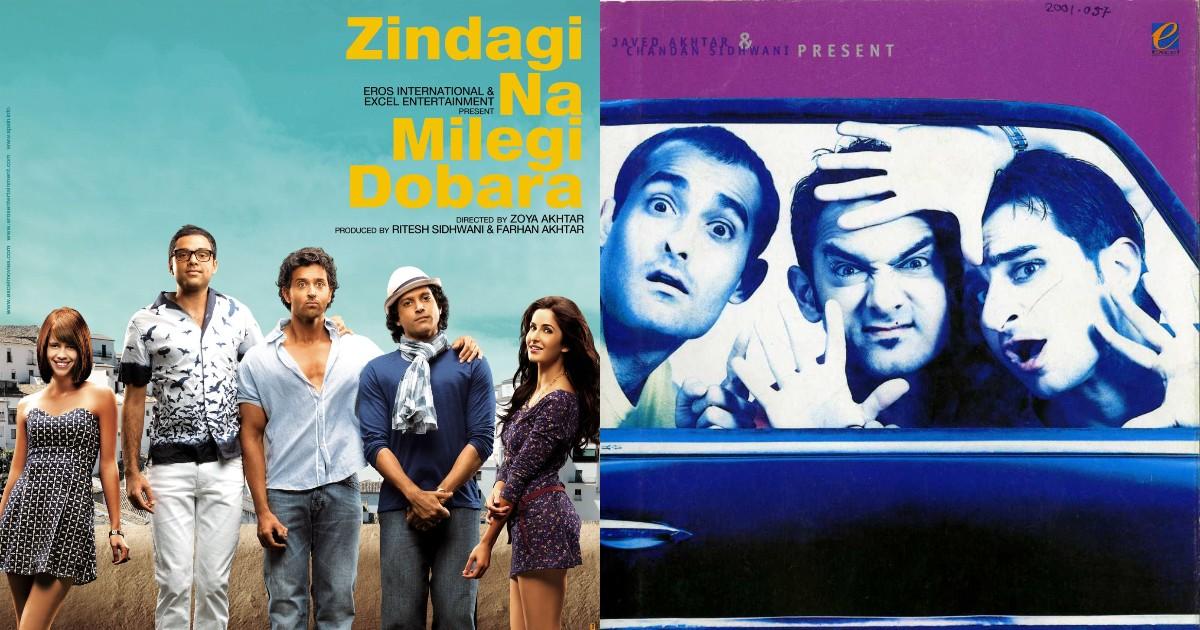For today’s no-no subject from films and society, we pick menstruation. From shushing about the topic to even shying away from openly buying sanitary pads – it has always been a taboo. Even films and shows that are centered around women, miss out on showing this very prominent part of their lives.
Let’s just face it, we cannot act like it doesn’t exist. At least the pain and the hormones do not let us, people who menstruate, forget about it. And, here are some scenes from films and shows that chose to normalize talking about it.
1. Turning Red
The film revolves around around puberty, adolescents, and growing up. It also talks about menstruation – as it should, given that puberty is also about physical changes. This one scene from the film where Mei’s mother gets her supplies when she thinks that Mei got her first period is subtle yet important. She not only has her care kit ready but also starts a conversation on what it means.
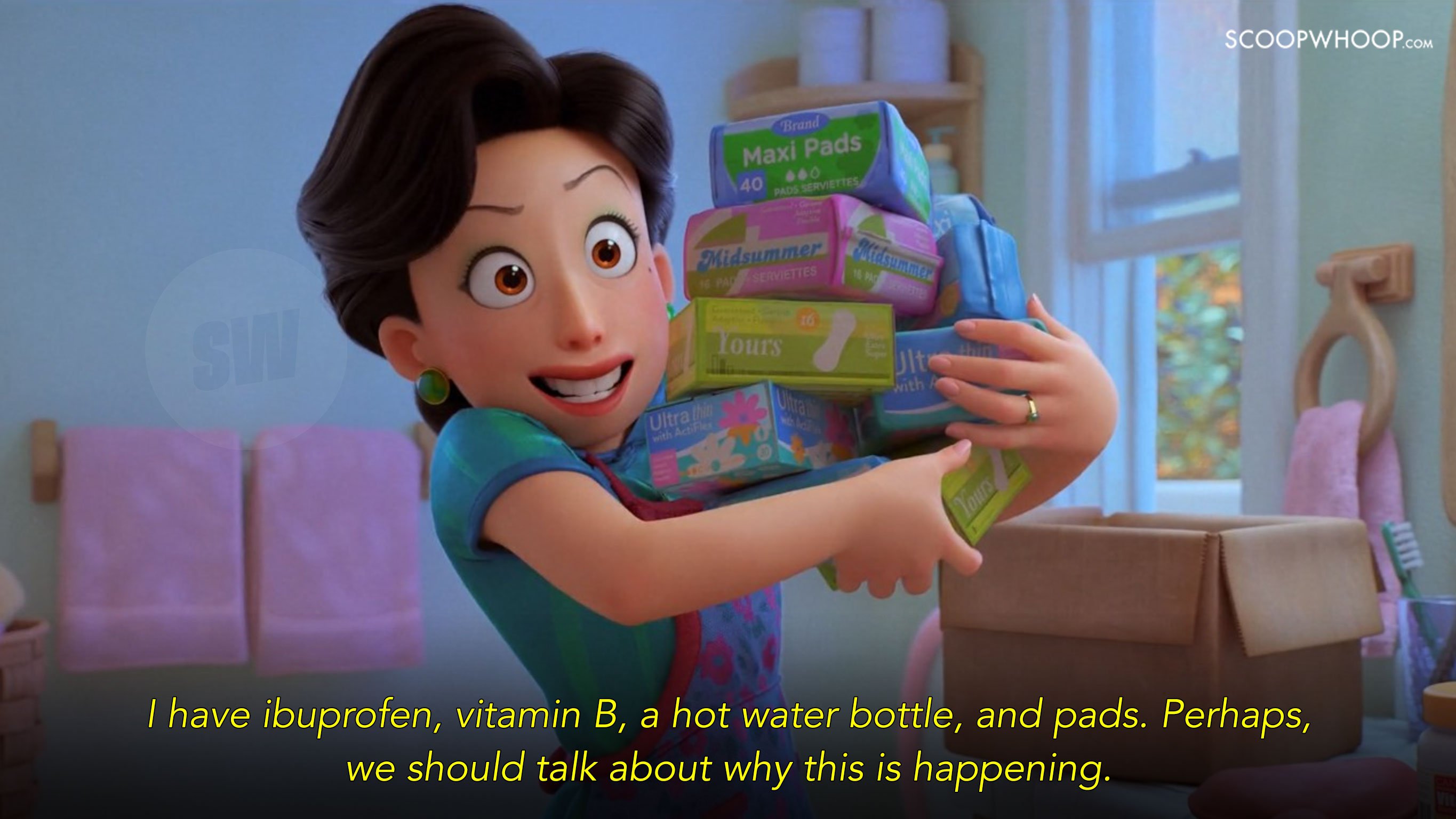
2. Phullu
Phullu that revolves around menstrual hygiene, is another Bollywood film that brought up the subject. There are many powerful scenes in the film, but this specific scene where Sharib Ali Hashmi’s character empathizes with the pain that women have to deal with, brings up a lot of emotion on-screen. The protagonist gets on a selfless path to bring about a change, which includes understanding the issues associated with menstrual hygiene and this scene shows that he does.
3. No Strings Attached
It is a fact that periods are associated with hormones and hence emotions. And, this scene from No Strings Attached where Adam makes Emma a mix tape for her is just the right amount of sweet. Let’s just say, we all low-key wanted that. The scene addressed the emotional changes involved with menstruation, which honestly made me feel very understood.
4. Kota Factory
It’s saddening when people go on and assume that menstruation is a ‘hyped’ concept. Women do not expect empathy but we do hope that people do not dismiss the struggles. There’s a scene in Kota Factory where Shivangi gives it back to Balmukund when he mentions that women have it easy. She brings up the physical and emotional struggles that women go through, on a regular basis. And that, should be enough for people to at least acknowledge the subject.
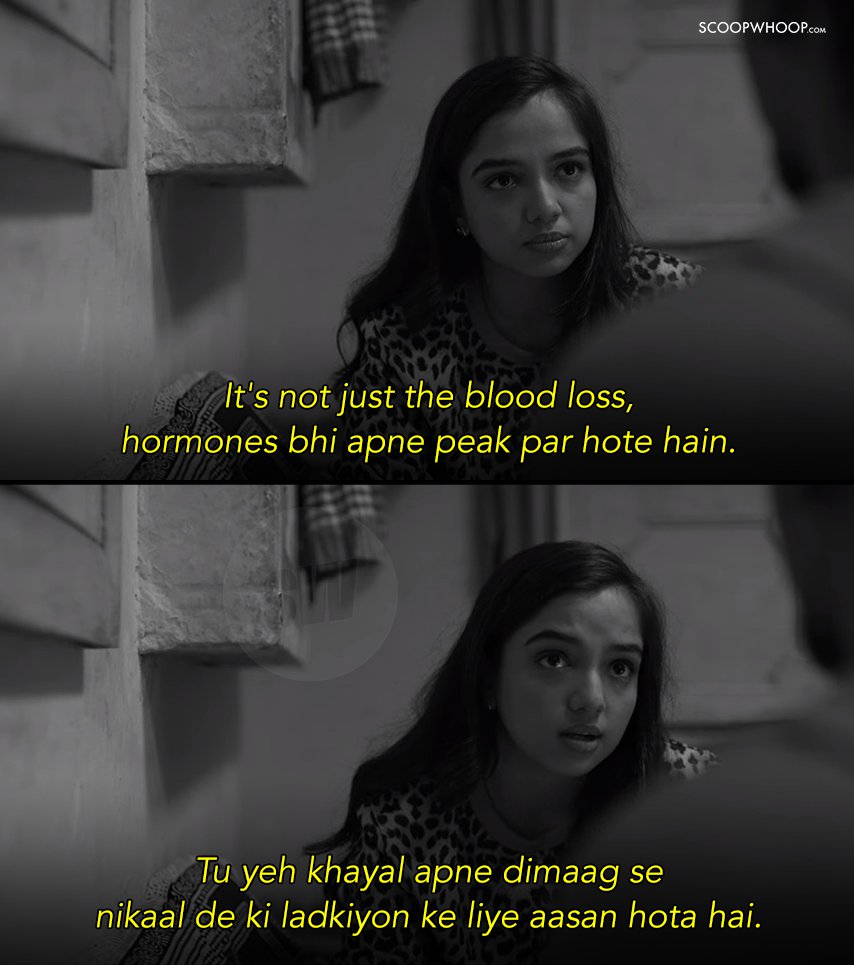
5. Man’s World
The web-series not only tackles misogyny in a different storyline but also individually focuses on issues that women have to deal with. There’s a scene in an episode where the male protagonist menstruates after the world and the roles associated with genders, flip. The reaction and the realization that hits him, brings up an important conversation on empathy that is severely lacking in our society.
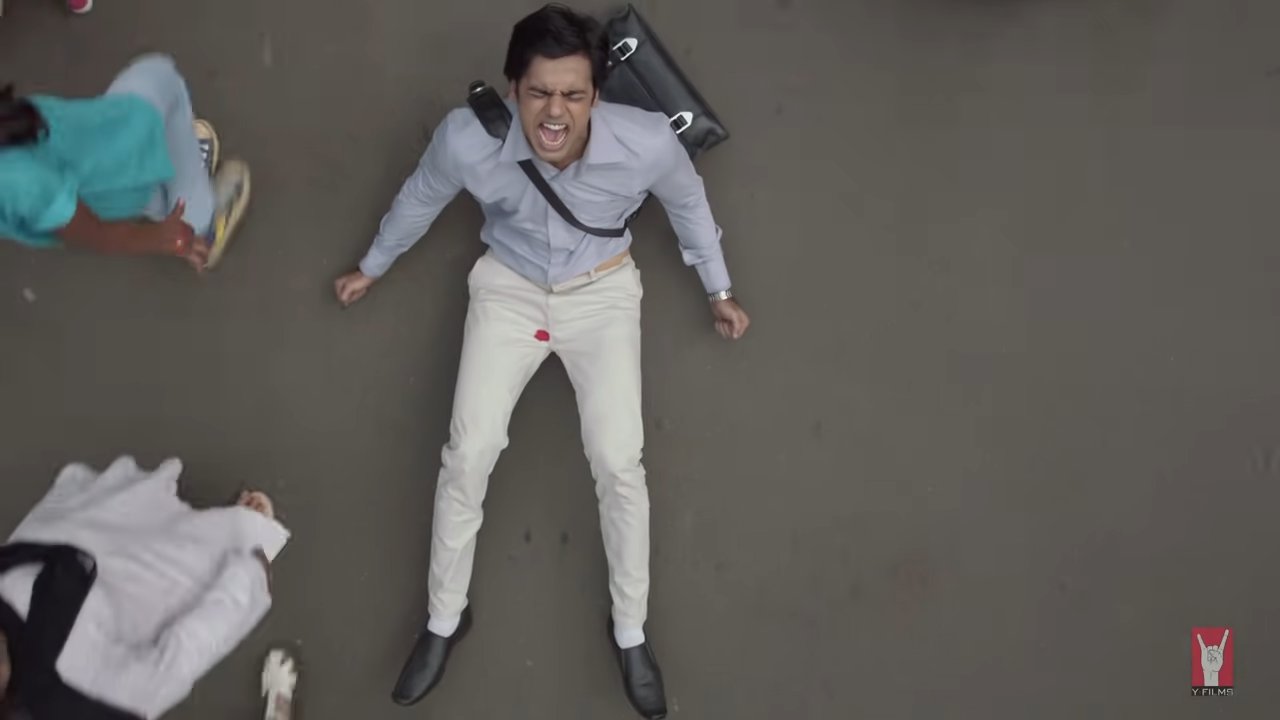
6. Orange Is The New Black
The American comedy-drama manages to bring up some important topics, including the realities of being in prison. An episode from season 4 revolves around the tampon and sanitary pad shortage in the prison. There’s a scene from the episode wherein two inmates discuss how tampons are not ‘affordable’ and ‘accessible’ for everyone. It puts light on the fact that menstrual hygiene is considered a luxury in a lot of places. Which again, is the truth.
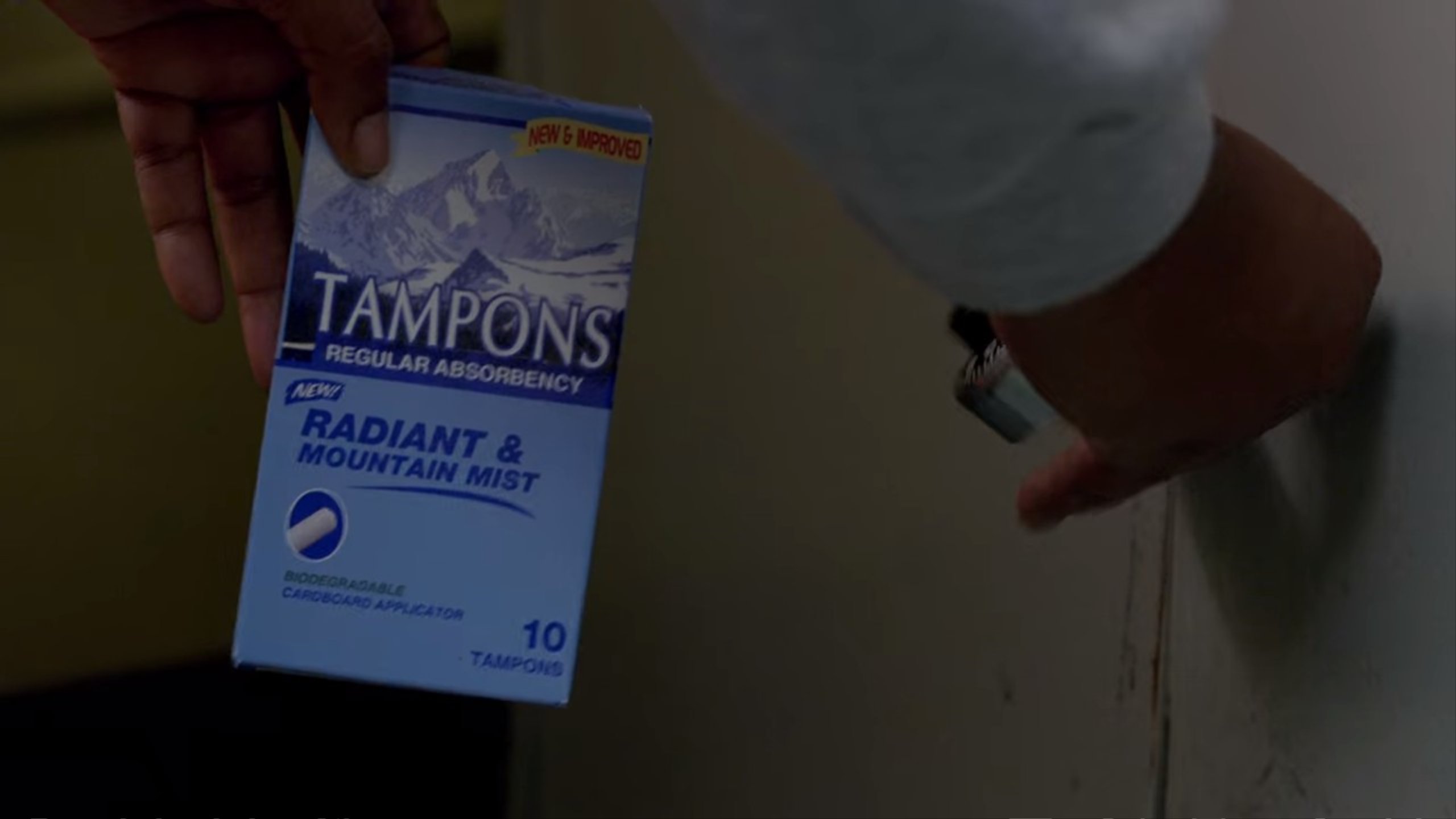
7. Gippi
The light-hearted film revolved around adolescence and accepting oneself, while growing up. Unlike most Bollywood films, this coming-of-age drama also include a discussion around menstruation. There wasn’t a dramatic scene associated with it, but it definitely acknowledged the subject. A scene from the film very subtly shows the time when the protagonist gets her first period. She picks up her sanitary pad and later binges on chocolate ice-cream, which is as real as it gets.
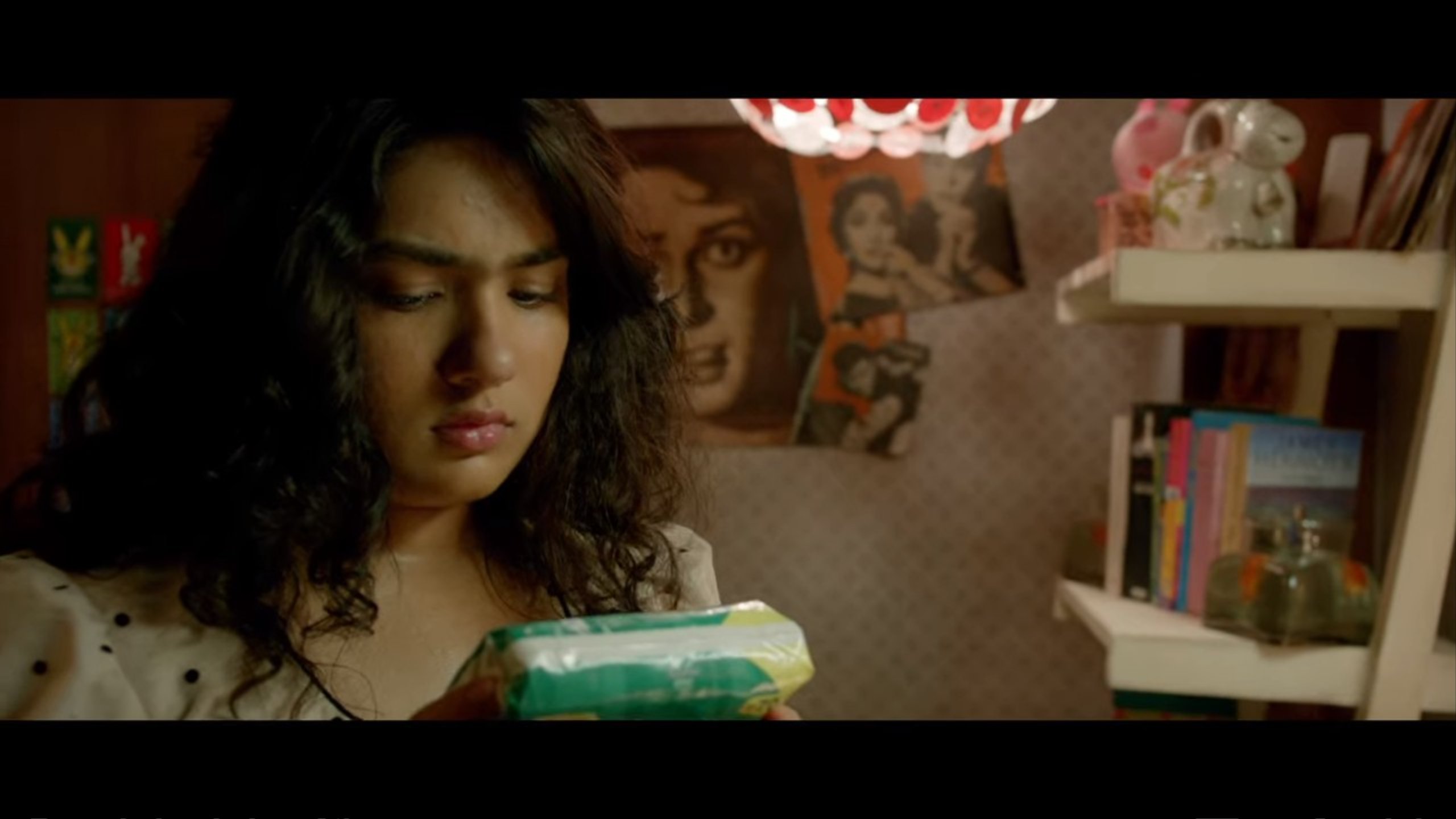
8. Padman
The film that revolves around menstruation, managed to start a conversation in mainstream Hindi cinema. However, there’s a scene in the film where Akshay Kumar’s character goes to get a sanitary pad for his wife and it’s sadly very relatable. The scene not showcases the fact that buying sanitary pads is still an ’embarrassing’ task but also the important topic of how they are too expensive for most women in the country to afford. It’s important because it’s real.
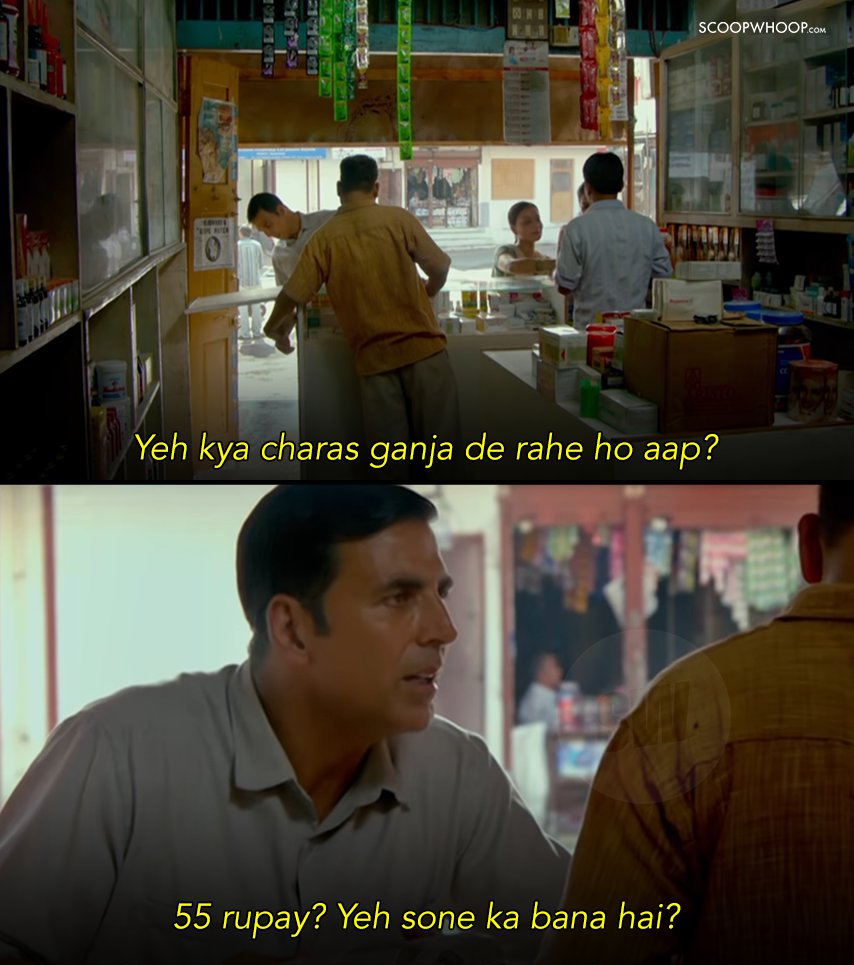
Society still needs a lot of changes, and definitely more empathy and awareness. But, these scenes bring some hope that we might get there.




